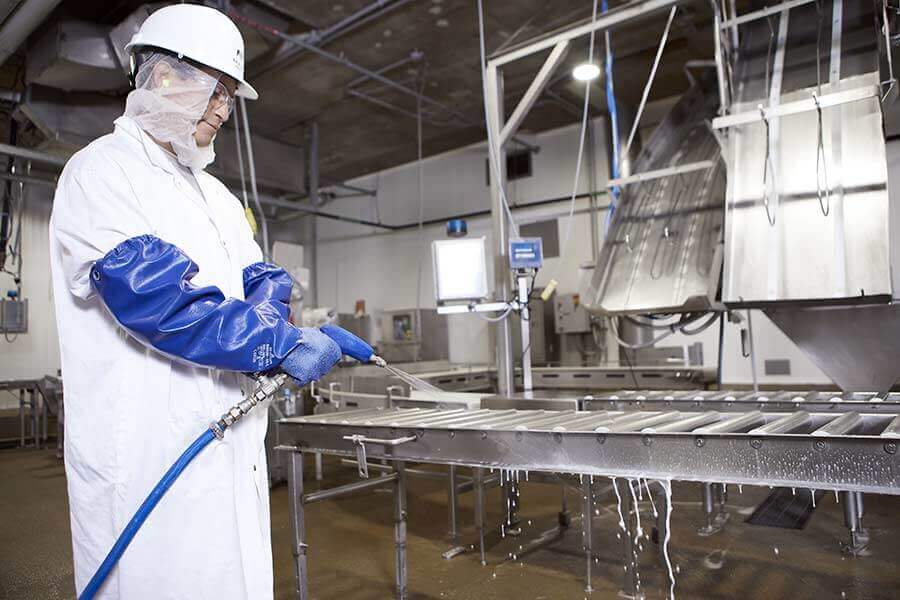Gel Technology: Innovation in Food Safety

Food safety is of paramount concern for the food & beverage industries, which face countless challenges in this respect.
Among other things, businesses in this sector must maintain meticulously clean production facilities while also minimizing the related costs. Companies often view cleanliness as a necessary but expensive evil that can only lessen profits. But that’s the wrong viewpoint perhaps. The impacts of an inadequate cleaning program are both significant and easy to imagine.
With product recalls on the rise and consumers savvier than ever, companies have no choice but to ensure food safety to protect their brand
This means more than simply having qualified staff who have been trained in the cleaning methods and who understand the importance of proper cleaning in the manufacturing process. Facilities should also have production equipment that has been designed to simplify cleaning. Surfaces should be non-porous and shaped to not trap liquids. Such measures will go a long way in ensuring food safety and meeting strict cleaning standards.
Another helpful measure is using gel technology. Compared to foam, gel adheres better to surfaces to prolong contact time.
And because they don’t produce additional foam, gel products rinse away more readily. This can immediately translate into significant water and labour savings, not to mention better cleaning efficiency.
Tangible, measurable benefits
- Savings of up to 60% in chemical consumption
- Savings of up to 50% in water consumption
- Savings of up to 40% in labour costs
Less tangible (but still meaningful) benefits
- Optimal cleaning power, thanks to gel’s longer contact time and thixotropic properties (a physical property found in some gels containing solid particles and whose flow properties change over time).
- Better food safety thanks to superior cleaning performance.
- Improved health and safety. Gel is less harmful to the lungs of employees, since fewer chemicals are sprayed into the air.
Reduced environmental impacts. Gel technology reduces water and chemical consumption, along with their associated evacuation costs.
Finding effective products that meet both food safety and environmental standards is a challenge for the food & beverage industry. Gel technology offers a number of interesting benefits that can help businesses in this sector meet increasingly strict cleaning and sanitation standards. It’s worth a try!
Like what you’re reading?
Get practical, expert-driven advice—sent straight to your inbox


